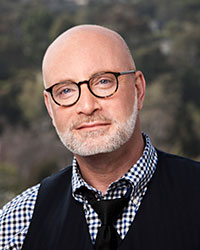 Dr. Robert Weiss LCSW, CSAT
Dr. Robert Weiss LCSW, CSAT
Sex and porn addicts uniformly report that escalation is a part of their addiction. Over time, they find that they need to spend more time engaging in their addiction and they must also increase the intensity of their behaviors.
This is true with all forms of addiction, not just sex and porn addiction. Consider heroin addiction. Nobody starts out shooting skag in a dark alley with a dirty needle. Instead, they start with beer or marijuana, never even thinking about where they might end up. Then, as they develop tolerance to those substances, they ingest more of those substances and, eventually, they move to harder drugs. Suddenly, with no idea how they got there, they’re using drugs they never wanted to use, and they’re hanging out in places and with people that scare and even disgust them.
Sex and porn addiction are the same. The behaviors escalate until suddenly addicts find themselves doing things that violate their ethics and values, cause them to feel shame, and maybe even frighten them.
Honestly, I can’t tell you how many people I’ve spoken with who started out with just a little bit of porn, and incredibly vanilla porn at that, only to find themselves, before they even realized what was happening, searching for and viewing porn that would have frightened them, disgusted them, and flat out turned them off when they first started. Kink, fetish, rape, incest, animals, children, and anything else you can think of. It’s all out there, and countless people who never in a million years thought they would look at it find themselves doing exactly that. And hating themselves for it.
Basically, addicts find themselves pushing the boundaries of their arousal template. Rather than living in and enjoying the most obvious and accessible (and internally acceptable) parts of their sexual selves, they must look for more and different, which can take them to parts of themselves that they didn’t know were there. This type of escalation can reveal latent same-sex attractions, transgender attractions, kinks, fetishes, and more. And for some addicts, these revelations can be quite disturbing. Suddenly, they’re sexually turned on by things that morally, ethically, and psychologically turn them off.
When individuals in this situation reach out to Seeking Integrity, they often want the unwanted parts of their arousal template to go away. They feel tremendous shame about the porn they’ve been using, they want to stop using that type or porn, and they don’t ever want to be turned on by it again.
When I encounter this, I usually say, “You can’t un-bake a cake.” What I mean by that is that it’s possible (and actually rather easy) for us to discover hidden elements of our arousal template and once those elements are discovered, they can’t be un-discovered. In other words, we can “add” to our arousal template by uncovering latent turn-ons, but we can’t subtract. No amount of therapy, treatment, aversion, prayer, willpower, or wishful thinking will cause an element of our arousal template to disappear, regardless of how unwanted that element might be. When the door of sexual arousal is opened, it stays open.
So, if you enter treatment and part of what you want to deal with is the fact that some of the things that turn you on are upsetting to you, what should you expect? First and foremost, you should not expect your therapist to try to help you change your arousal template. In fact, if you encounter a therapist who attempts that, you should run away as fast as you can because that therapist does not understand human sexuality and is more likely to harm you than help you. The proper approach is to help you understand and accept your arousal template as part of yourself (even if you don’t want to act on it), and to help you stop hating yourself just because a certain thing turns you on.
A good therapist will work to validate and normalize your attractions, no matter how outré they seem to you. A good therapist will let you know that as long as your attractions are legal, consensual, and not harmful to you or others, it’s OK for you to be curious, to explore, and to learn. A good therapist will also let you know that you do not have to act on your attractions. For instance, a married heterosexual man who discovers, through his use of porn, that trans-women turn him on might choose to accept that fact but not act on it.
At the end of the day, individuals who struggle with elements of their sexual arousal template need to know that it’s OK to have these attractions. They also need to understand they can choose to act on these turn-ons, or not. The choice is theirs. Without such validation and knowledge, these individuals are likely to experience significant shame, and with that, they will also experience an increased risk for depression, anxiety, addiction, and similar life issues.
* * * * * * * * * *
If you or a loved one are struggling with porn addiction, Seeking Integrity’s treatment programs can help. In addition to inpatient rehab for porn addiction, we offer low-cost online workgroups for male porn addicts new to recovery. Click HERE for information.
